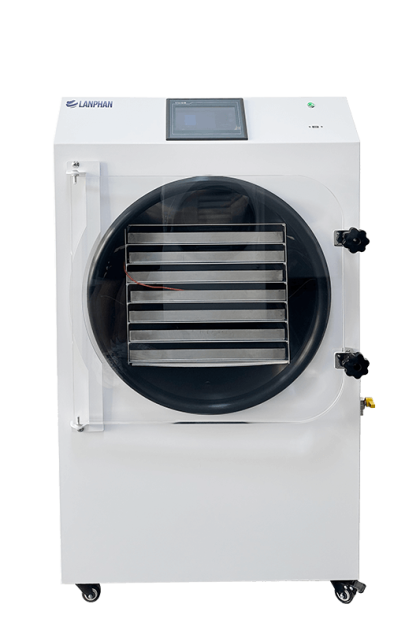A freeze dryer and a dehydrator have notable differences in their food processing methods, and there are specific reasons for opting for a freeze dryer. Here are the distinctions and the rationale for selecting a freeze dryer:
- Principle: A dehydrator removes moisture from food by applying heat, causing the water content to evaporate and achieve dryness. In contrast, a freeze dryer freezes the food at low temperatures and employs a vacuum to transform the water directly from a solid to a gas state, bypassing the liquid phase.
- Nutrient Preservation: Thanks to the low temperature and vacuum environment, a freeze dryer better preserves the nutritional components of the food, including vitamins, minerals, and enzyme activity. Conversely, dehydration, which involves heating, may result in some nutrient loss.
- Texture and Taste: Freeze drying helps to maintain the original texture and flavor of the food, allowing it to rehydrate and resemble fresh ingredients. Dehydrated foods, on the other hand, often become drier, harder, or occasionally lose their original texture.
- Shelf Life: By eliminating moisture, freeze drying significantly extends the shelf life of food. Freeze-dried foods can be stored for extended periods under appropriate conditions, whereas dehydrated foods have a comparatively shorter shelf life.
- Convenience: Freeze dryers are relatively simple to operate and require minimal supervision. Once the proper parameters are set, the process can be automated. Conversely, dehydrators typically demand longer processing times and more frequent monitoring and adjustments.
In conclusion, selecting a freeze dryer is motivated by its superior ability to preserve nutritional content, maintain texture and taste, prolong shelf life, and provide a more convenient operating experience.
Playlist
5 Videos





